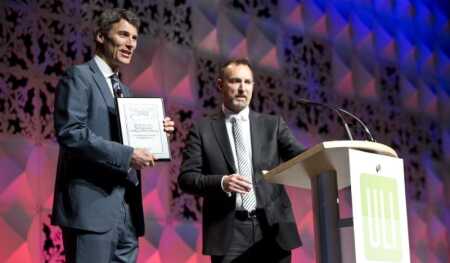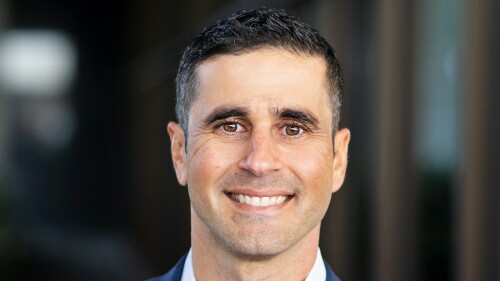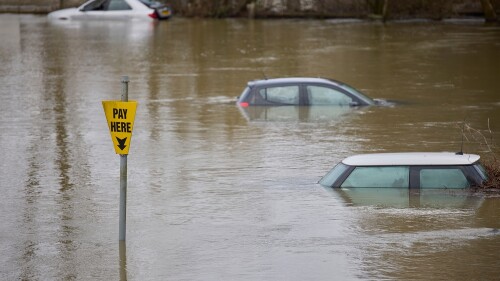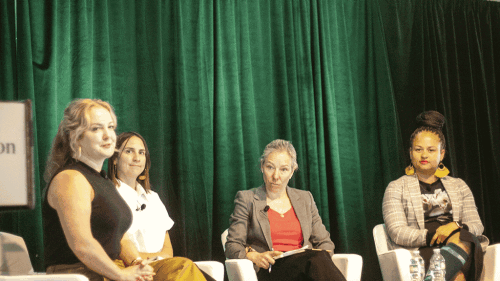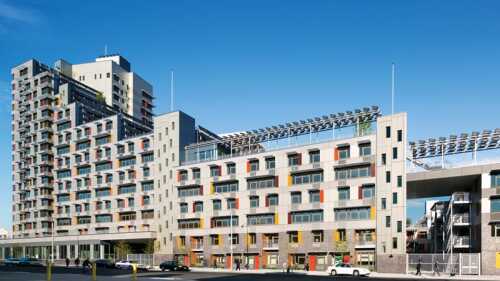Vancouver Mayor Gregor Robertson accepted the 2013 ULI Urban Open Space Award for the Parks and Waterfront at Southeast False Creek at a 2014 ULI Spring Meeting general session this week. The two-time mayor also participated in a question-and-answer session with attendees, delving into Vancouver’s increasingly car-free lifestyle, struggles with affordability, dealing with climate change, and creating world-class public spaces.
“The first decision made by the [Vancouver] city council 120 years ago was to ask for the land from the federal government to create Stanley Park,” said Robertson.
Robertson said that hosting the 2010 Winter Olympics accelerated the trend away from car dependence, creating the Canada Line to connect the downtown to the city’s airport by rail. “We saw a big spike in [noncar] transit during the Olympics,” he said, which led to very little traffic despite the influx of visitors. About 44 percent of residents now commute by walking, bicycling, and transit. Robertson expects that number to exceed 50 percent, saying, “We’re going to have to leapfrog out of the unsustainable models of the past.” As part of the decreased dependence on cars and rising issues with affordable housing, the city is looking at possibly removing two freeways that lead into the city.
Robertson sees the decreased dependence on cars going hand in hand with reducing the impact of carbon emissions. Because it is a city on the ocean, he said that the latest estimates have Vancouver needing to spend $10 billion to deal with impending sea rise. He said, “It will likely be done primarily with barriers. ... As some parts of the city are below sea level, we likely have lots to learn from the Dutch.” At another session, Grosvenor released a report ranking Vancouver as the second-most-resilient city in the world.
While much of Vancouver’s growth has come from international homebuyers, Robertson said there is also a boom in office construction. This is being driven by growth of both green jobs and digital media, including the city’s becoming something of a second home for the film and TV industries.

